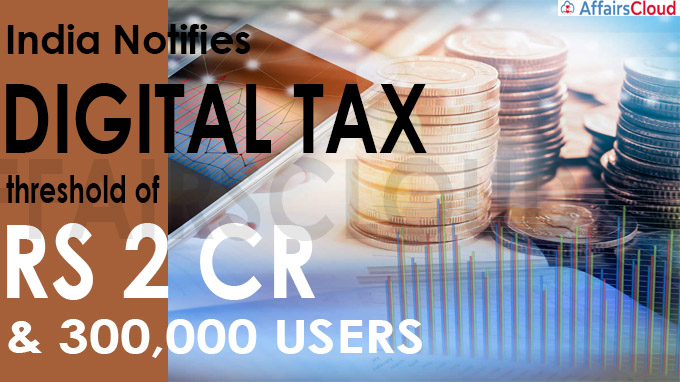 The Central Board of Direct Taxes (CBDT) has notified Digital Tax Threshold for Non-Resident Technology firms like Google, Facebook, Netflix to pay tax in India.
The Central Board of Direct Taxes (CBDT) has notified Digital Tax Threshold for Non-Resident Technology firms like Google, Facebook, Netflix to pay tax in India.
i.The Thresholds are
- Transaction Threshold – Any non-resident whose revenue exceeds INR 2 Crore for transactions in respect of goods, services or property with any person in India. It includes transactions on download of data or software.
- User Threshold – Any entity that systematically and continuously does business with more than 3 Lakh users in India.
ii.The thresholds are part of the Significant Economic Presence (SEP) principle, which was introduced in Finance Bill 2018-19.
iii.It is set to come into effect from April 1, 2022.
Key Points
i.The proposed changes do not cover the existing double taxation avoidance agreements.
- To tax Tech Companies like Facebook, Google and others, India has to renegotiate/renew tax treaties with the United States and other countries.
ii.India has expanded the scope of equalisation levy to tax non-resident digital entities.
- Till 2019-20, equalization levy was applicable only to digital advertising services at the rate of 6%.
- In April 2020, Government imposed a 2% tax on non-resident e-commerce players with a turnover of INR 2 Crore.
- The Finance Act 2021-22 furthered widened the scope by covering e-commerce supply or service (including acceptance of offer for sale, placing purchase order, supply of goods/provision of services, partial/whole payment of consideration).
iii.India has already revised tax pacts with low or zero tax jurisdictions like Mauritius, Singapore, and Cyprus. Through this it gained taxation rights over capital gains to plug loopholes.
About Central Board of Direct Taxes (CBDT)
Chairperson – Pramod Chandra Mody
Head Office – New Delhi




